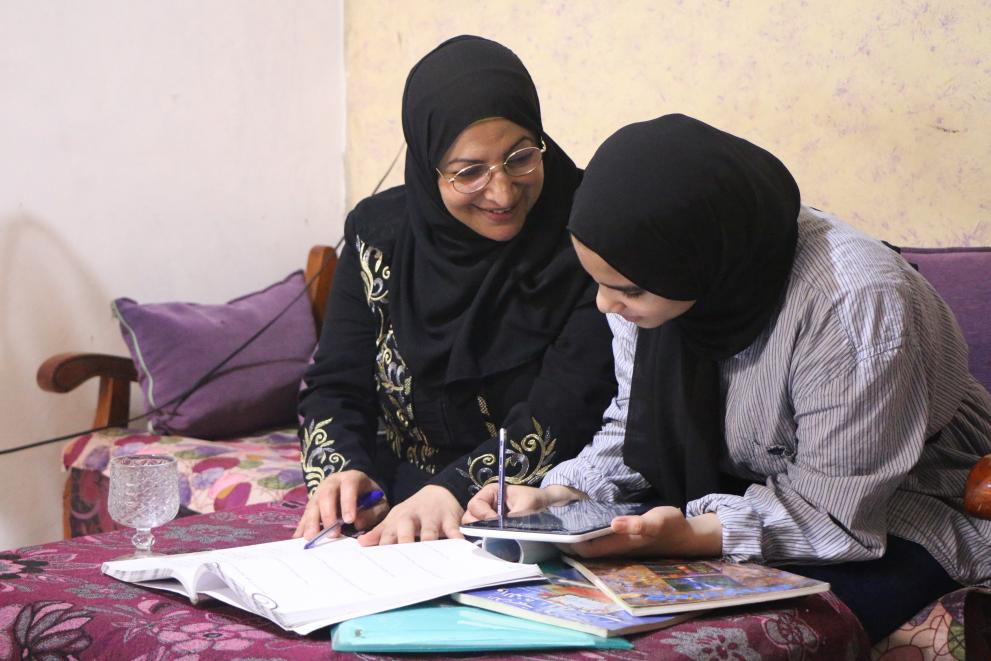
The tablet, which had a one-month phone line, allowed me to communicate with my teachers and classmates to discuss the lessons. Also, it meant I could watch educational videos
Amina is a 13 year old Palestine refugee living with her family in Beddawi camp, Lebanon. She is a grade seven student and goes to Mazar school in the camp. Due to the difficult socio-economic situation in Lebanon and the COVID-19 outbreak, the schools were forced to shut down many times since the end of last year. Amina and her 2 siblings can no longer go to school and have to study from home, however they only have one mobile phone and therefore cannot all have access to the Self Learning Programme (SLP) put in place by UNRWA.
“We are three students, me, my sister and my brother, and we have only one phone. My sister was in grade 9, so we agreed she can use the phone, because she had a Brevet exam” says Amina.
SLP is an online programme implemented by UNRWA as an emergency solution to make sure students can keep learning from home via online lessons. However, many Palestine refugee families in Lebanon have one mobile device at home, making online learning much more complicated, especially when there is more than one student in the family.
A key aspect of the project is therefore to provide the students with the means to study remotely and thanks to the support of the EU Regional Trust Fund, Madad, UNRWA was able to purchase mobile phones, tablets and has supported internet fares for those in need. A summer catch-up programme was also put in place to help the students who could not benefit from the SLP during the school year.
Amina received one of these tablets and managed to catch up on her studies “The tablet, which had a one-month phone line, allowed me to communicate with my teachers and classmates to discuss the lessons. Also, it meant I could watch educational videos.”
Mohammad, 12, a student at UNRWA’s Kawwab school was not able to join the SLP initially due to a lack of equipment and had to stop his studies despite being first of his class before the outbreak. “When we got a call from the school about the catch-up programme and the distribution of tablets with charged phone lines, I was so happy. This made it easy for me to study and to follow up on my lessons day to day.”
Another key aspect of the SLP in supporting students during those difficult times is to help them adapt to the new reality by maintaining their psychosocial wellbeing.
Samah who goes to UNRWA’s Touba school explains that: “ At first we faced some difficulties studying online, but we got used to it with time and were able to understand everything […] I want to thank the school counsellor because he supported us psychologically and stayed in contact with us to follow up on the learning process.”
Given the importance of mobile communication during this time and the challenges faced in having access to it, the support provided through communication assistance to students and teachers cannot be overstated. It has allowed over 1,000 students and hundreds of teachers to stay connected, engaged and in education during this time.
“These days, at home, I'm studying every day and watching TV. I like doing my worksheets and sometimes it is fun because the questions are in the form of games. I encourage my fellow students to study hard and not to give up because education is our future.” concludes Amina.
